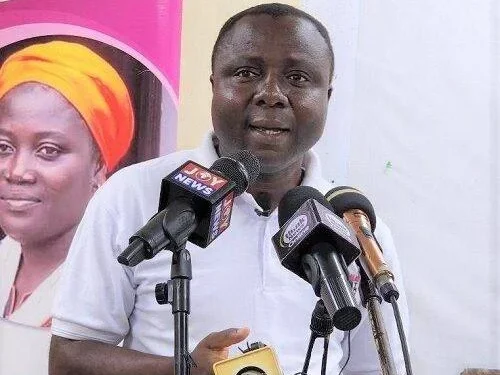The Meena Breast Cancer Foundation, a non-governmental organisation (NGO), has called on the National Commission for Civic Education (NCCE) to integrate continuous breast cancer education into its civic programmes, stressing that seasonal awareness campaigns are inadequate amid rising breast cancer deaths in Ghana.
Mr Ibrahim Oppong Kwarteng, Founder of the Foundation, described the situation as a national emergency and urged the NCCE to expand its public education mandate to include year-round breast cancer awareness.
He made the call during a free breast cancer education and screening exercise at the Amina Mosque in Kasoa, where about 500 women participated.
“Breast cancer is claiming lives every day, yet we only talk about it for one month in a year. This is a national crisis that demands a civic and public health response,”
Mr. Kwarteng stated.
Mr Kwarteng, who also serves as Executive Director of the Crime Check Foundation, said the NCCE’s grassroots structures positioned it well to support nationwide behavioural change and awareness creation, similar to its previous role in HIV education campaigns.
He urged the Commission to partner with the Ghana Health Service (GHS) and other NGOs to ensure that breast cancer education reaches every community, adding that education “must happen every day, not only in October.”
Follow The Ghanaian Standard channel on WhatsApp for the latest news stories from Ghana.
According to GLOBOCAN 2022 statistics, Ghana records an estimated 4,500 new breast cancer cases annually, with more than 2,000 deaths, about half of those diagnosed.
Dr Osman Alidu, a Senior Medical Officer at St. Martin’s de Porres Catholic Hospital in Agomanya, said the high mortality rate reflected broader health challenges, including late-stage diagnosis, weak health systems, and limited awareness.
He added that treatment centres’ concentration in major cities like Accra and Kumasi hindered access for rural women, worsening the situation.
“About 70 per cent of women present with late-stage breast cancer, and many do not survive beyond a few months after diagnosis,”
— Dr. Alidu noted.
Responding to the call, Ms Henrietta Glikpo, NCCE Director for Yilo Krobo Municipality, said the Commission welcomed collaboration with health authorities and civil society. She stressed that partnerships between the NCCE, GHS, WHO, and NGOs were vital for expanding education and screening to rural and low-income communities, where myths and stigma remain widespread.
























